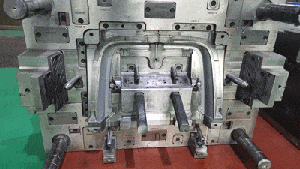
Three mold makers form Plastics Technology Alliance
April 4, 2019
Mold makers
There is strength—and technology, capacity and capabilities—in numbers, which is why Mold Craft Inc. (Willernie, MN), Westminster Tool (Plainfield, CT) and Extreme Tool & Engineering Inc. (Wakefield, MI) have formed a joint venture, the Plastics Technology Alliance (PTA).
mold making technology
The three mold manufacturers, each of whom have built a reputation for innovative design and precision mold engineering, offer the plastics industry single-source quoting and access to the expertise of three state-of-the art facilities specializing in automation development, tight tolerances and best processes and procedures from design through production.
“Not only does the creation of the joint venture help our clients, it allows the partners to share resources and best practices,” said Justin McPhee, VP Engineering at Mold Craft. “Collaboration could be as simple as bouncing ideas off each other during the engineering phase to more complex scenarios, such as immersing one company’s employees in another company to improve processes such as engineering, hard milling or automation.” Leveraging each other’s best practices is instrumental in the overall success of PTA. Ray Coombs, President of Westminster Tool believes, “There is strength in collaboration and Westminster Tool is excited to partner with fellow world-class organizations, Mold Craft and Extreme. Partnering with these two companies provides an opportunity to learn and improve our operations while providing expanded offerings to our clients. Together we offer a wide range of services that will enable us to better address our clients’ diverse challenges.” The Plastics Technology Alliance is focused on offering clients a trusted go-to source with capacity, versatile experience and expertise. “The desire to continue providing world-class solutions, continuous improvement and increased capacity bandwidth were drivers in developing this joint venture,” said Mike Zacharias, President of Extreme Tool. “Many of our clients already work with one or more of us. Now, they have access to the best of each company through one central, easy-to-use resource. We expect clients to benefit from the different perspectives, capacity, capabilities, innovation and total turnkey solutions.” While this type of arrangement has been tried before among moldmakers in the form of consortiums, Zacharias emphasized that PTA is different. “We know there are others who have tried it, but we’ve spent the time and energy to create a formal joint venture as an LLC to protect our clients and add credibility.” All three PTA members are also on the Board of Directors of the American Mold Builders Association. “It’s an incredible organization for sharing best practices,” said Zacharias. “What I’ve learned is that I’ve aligned myself with two other organizations that embrace ethics, honesty and transparency.” One reason the three companies decided on a formal joint venture is to have access to the capacity and capabilities that each company provides. “Sometimes there will be an application specific to one of us. For example only one of us builds micro molds and has that expertise, so when we get an application that requires a micro mold we make a direct referral to Mold Craft,” Zacharias explained. “In other cases we have clients who have multi-million dollar programs. They can send the program to Plastics Technology Alliance directly and we all look at it together and essentially come up with a game plan; we determine best practices and what’s best for the client, and come up with a PTA quote for the client,” said Zacharias. “We don’t want them to worry about confidentiality or collusion—we put the investment into making sure there isn’t a conflict.” Each company retains its ownership and identity. “We did not merge but we have an umbrella that ties us together for the client’s benefit,” Zacharias explained. “We have common standards, common clients and can share work and help each other keep our customers happy.”
Another benefit of the joint venture is that it helps level the work load in the shops. “Keeping our shops level-loaded isn’t easy,” Zacharias said. “We like to keep it between 80 and 100%. Sometimes we have a capacity issue, but as PTA, we can offer clients the capacity and capabilities that they need.”
